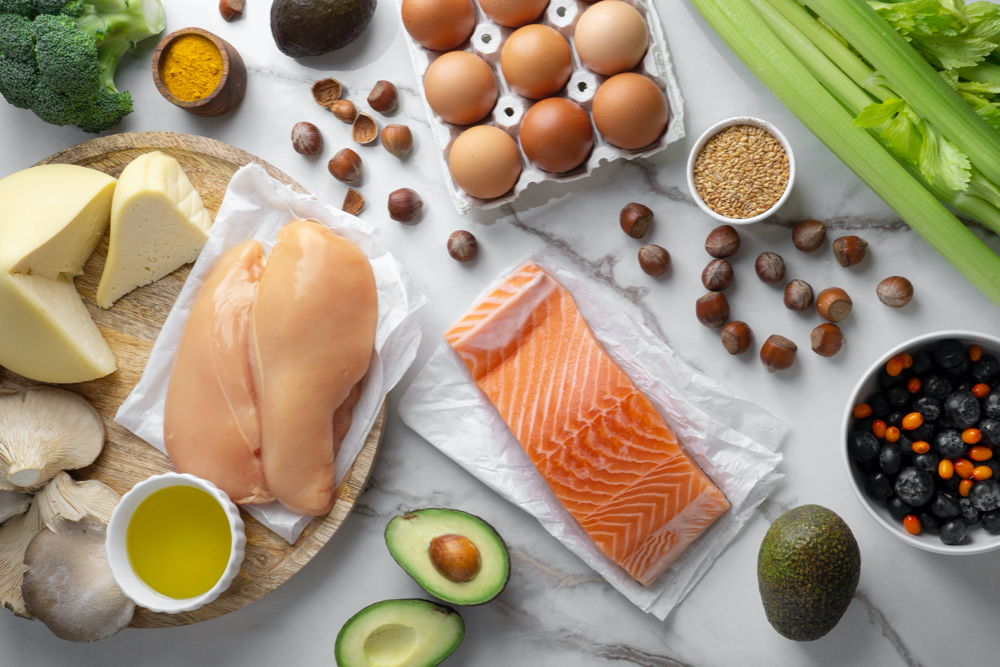- Fast results
- 4,000+ locations
- 4.8 star rating
Need Help? (888) GET LABS




This article is Medically Approved ✓ by Dr. Edward Salko
It’s hard to imagine a smooth, healthy pregnancy without the B vitamin, also known as folate.
For many, folate is referred to as folic acid. The two terms are sometimes interchanged, but they have a crucial difference.
Folate naturally occurs in foods, while folic acid is its synthetic counterpart. Nonetheless, they have the same effects, particularly in metabolism and cellular growth.
All kinds of prenatal vitamins are vital for you and your baby’s health when it comes to pregnancy. However, folic acid plays a significant role in fetal organ development.
The impact of folic acid deficiency can become severe for the fetus ranging from elevated risks of developing congenital heart conditions to birth deformations like neural tube defects (NTD).
And according to the CDC, 1 in 33 newborns suffer from congenital disabilities in the US.
Hence, during and before pregnancy, it is essential to ensure high folate intake.
As a standard, at least 400 micrograms of folic acid is required as early as the first month of the pregnancy term. However, it’s recommended that you aim for 600 to 1000 micrograms for optimum fetal health.
In addition, even women who are still on the verge of conceiving are advised to take 400 micrograms of folic acid daily.
You can secure your folic acid intake through supplementation and fortified meal staples. Nonetheless, even without these products, you can still acquire folates from organic foods.
If you’re aiming for a pregnancy diet rich in natural folic acid, read on and find out which foods to include in your meals.
Folates or folic acid are essential nutrients needed by the body even outside pregnancy. One of their primary functions is to aid in the formation of healthy blood cells.
As it turns out, folic acid prevents birth deformation and inhibits red blood cell (RBC) deformations. With a folic acid deficiency, RBC can become abnormally large or misshapen, causing dysfunction in oxygen delivery to the cell. This condition is known as folate deficiency anemia.
Likewise, folates also work hand-in-hand with other vitamins to process and create new proteins in the body. Proteins perform various essential functions that keep biological processes in proper order and operation.
Furthermore, folic acid is also essential in making new cells. It ensures that each cell undergoes cell division or mitosis without critical issues, particularly in the duplication of DNA. In this sense, folic acid helps in preventing the formation of cancer cells.
Whether it involves pregnancy or not, it is clear that everyone needs enough folic acid.
As mentioned before, pregnant women need 600 micrograms of folic acid. Those who are carrying twins will need about 1,000 micrograms of folic a day. Breastfeeding women, on the other hand, need 500 micrograms.
Adults and adolescents 14 and above need at least 400 micrograms per day for adequate intake. Children aged 4 to 8 have to obtain 200 micrograms of folic acid a day. On the other hand, those aged 9 to 13 require folic acid amounting to 300 micrograms daily.

Adequate folic acid intake reduces the risks of birth defects during pregnancy. This is why it should be taken in the recommended amount, especially during the first trimester where organ development takes place.
Folic acid deficiency is associated with brain and spinal defects (NTD) as well as premature labor. So, going down to the specifics, here are birth defects your child may be at risk from when you lack folic acid in your diet or supplementation.
Spina bifida is an NTD condition occurring when the spinal cord is not properly or completely formed. As a result, it causes significant spinal and nerve damage.
Depending on which spinal position is affected, people born with spina bifida develop problems with their motor skills and muscular function. Some are even paralyzed from the waist down, requiring the use of a wheelchair.
Anencephaly is a severe birth defect involving missing parts in the newborn’s brain or skull. Like spina bifida, it is also another case of NTD.
However, death rates for anencephaly are higher. This is because most babies die inside the womb, while those who survive until their birth also pass away within hours or days.
Another NTD, encephalocele, is characterized by a sac containing brain fluids or tissues that extends or protrudes outside the skull. It is a result of the incomplete formation of the neural tube.
The condition is life-threatening and will require delicate surgery as well as life-long treatment for cognitive issues.
While congenital heart disease is widely considered to have a genetic disposition, studies have shown that a high intake of folic acid during pregnancy can lower the risk for this disorder.
Moreover, even the periconceptional use of folic acid can reduce the likelihood of congenital heart disease.
Research has shown that women with sufficient folic acid intake during early pregnancy have lower chances of giving birth to babies with cleft lips.
More clinical trials and further studies are required to strengthen the association of adequate folic acid with orofacial cleft risk reduction.
But in lowering the risk for isolated cleft lip formation through ample folic acid intake, the evidence is strong.
Insufficient folic acid manifests in the form of folate-deficiency anemia which has the following symptoms:
If you wish to monitor the amount of folic acid in your blood accurately, a great way to do so is to take the Folic Acid/Folate/Vitamin B9 Blood Test. The result will help you secure proper treatment and necessary supplementation or diet adjustment.

Aside from taking supplements, you can increase the folic acid in your body by including folate-rich foods in your diet.
During pregnancy, maternal nutrition is crucial for your health and embryonic development. While your cravings can interfere with your food choices, you may find it beneficial to at least include the following organic foods in your grocery list.
A half-cup serving of avocado contains 59 micrograms of folic acid. In addition, according to a wide-range review, avocados contain other essential nutrients vital for maternal and fetal health.
A raw banana has about 20 micrograms of folate per serving, according to the USDA. A medium-sized banana is estimated to have folate at 44 micrograms. Hence, do not hesitate to include this staple fruit in your regular diet.
Beef liver packs vitamins A and B12, making it a perfect inclusion in many meals. But it also has high folate content at about more than 200 micrograms per 85 grams of serving.
Broccoli may not be everyone’s favorite vegetable, but it sure contains loads of nutrients. In terms of folic acid, it has 61 micrograms per 100 grams of serving.
Craving for Brussel sprouts may be a tad unusual, but it sure provides lots of health benefits. Aside from other vitamins and minerals, Brussel sprouts are rich in folate with 101 micrograms per 100 grams/.
It’s common knowledge that oranges and other citrus fruits are bursting with vitamin C. But they also have enough folates at 30 micrograms.
It’s incredible how a simple yet satisfying meal like an omelet is so nutritious. It not only contains proteins, minerals, and other nutrients, it also has folates at 44 micrograms.
Cruciferous vegetables like kale and spinach are packed with essential vitamins and minerals. When it comes to folic acid, leafy vegetables like spinach have 194 micrograms per serving, making it a powerhouse source of folate.
Never underestimate the true value of legumes like lentils and beans. These tiny food staples have folic acid of over 100 micrograms per serving. For example, cooked lentils have 181 micrograms of total folate.
If you’re a nut muncher, here’s a bit of good news. These tiny shelled fruits and seeds contain enough folate to add to your daily intake requirement. Walnuts, for example, have 98 micrograms of folate per 100 grams of serving.
A healthy pregnancy reduces the risks of birth disorders and defects significantly.
That’s why prenatal care is also translated into ensuring that proper nutrition and supplementation are achieved.
In this sense, taking folic acid supplements and including folate-rich food in your diet is essential for you and your child’s protection against health threats.
Also, monitor your pregnancy with necessary tests like the Prenatal Blood Panel Comprehensive Blood Test and other prenatal blood tests.
Nevertheless, always consult with your doctor to make sure that you’re moving in the right direction.

© Copyright 2025 Personalabs. All Rights Reserved.